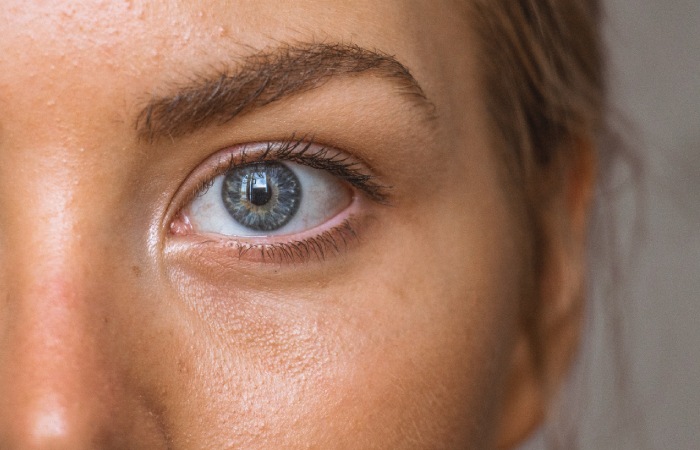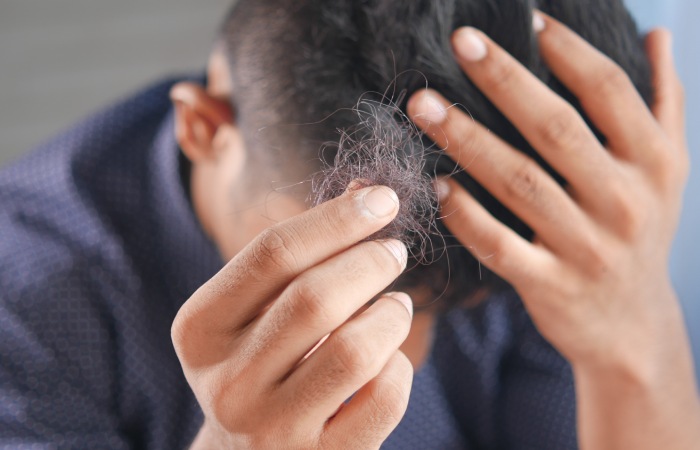About Stress Affects
Stress Affects Beauty, Skin and Health – Stress is how the body and brain respond to pressure. From time to time, everyone experiences stress. It could be due to factors like performance at work or school, a traumatic event or a significant life change. We all have different ways to deal with both minor and major stressors.
Sadly, in some individuals, stress can repeatedly occur over quite some time. If this happens to you, find a coping mechanism that will help you recover. You can also seek help from your healthcare provider.
If left untreated, stress can cause harm to your body. In this write-up, we will look at ways stress may affect your skin, natural beauty and health. Hence, you may also need personal therapist to stay away from stress.
8 Terrible Ways Of Stress Affects Beauty, Skin and Health
1. Skin Conditions.

When stressed, the body produces adrenaline and the stress hormone cortisol. Cortisol increases oil production in your skin glands, which clogs skin pores, leading to acne breakouts and an oily appearance.
The hormone cortisol, when excessively produced, speeds up the ageing process. You may happen to notice wrinkles presenting themselves earlier than you would expect. To control the appearance of acne and also, wrinkles, many have found weed (otherwise known as cannabis) beneficial.
A study done in 2019 suggests that cannabis contains antibacterial and antifungal properties, which help prevent acne’s appearance. Additionally, the anti-inflammatory properties of cannabis help avoid the appearance of wrinkles or smile lines.
If you would like to try cannabis, or even have plans to grow your own plants, you can learn how to grow weed at Zamnesia. Zamnesia offers manuals for indoor and outdoor growing to guide you through plant care, ensuring you can enjoy the awesome benefits your plants are able to provide.
2. Heart Disease.

In response to stress, the body produces a hormone called cortisol. Cortisol increases sugar levels in the bloodstream. High levels of cortisol production from long-term stress can accelerate blood cholesterol, blood pressure and blood sugars. The three are risk factors for heart diseases.
Minor stress can also contribute to poor blood flow towards the heart muscles. Due to low blood flow, the heart doesn’t get enough blood and also, oxygen, resulting in blood clots. The stickier the blood, the higher the chances of suffering a stroke.
Exercising is recommended to reverse the heart disease rate. Exercise lowers the heart disease risk by increasing the good cholesterol, which flashes the bloodstream’s bad cholesterol.
3. Hair Loss.

When you are stressed, the adrenal glands produce cortisol hormone. The hormone cortisol signals the hair follicles to shift from the growth phase to the transition face. In the transition, face hair falls out. This common type of hair loss is known as telogen effluvium.
If you happen to lose more than a hundred and fifty strands of hair in a day, blame it on stress. The best solution to this hair loss problem is self-care and monitoring your stress reaction.
4. Obesity.
Long-term occurrence of stress can lead to comfort eating. Comfort eating involves overeating foods high in sugars, fat and calories, which result in weight gain. Repeatedly overfeeding will lead to obesity.
To break the stress and obesity cycle, practice the below:
- Exercise regularly.
- Practice healthier comfort eating.
- Drink plenty of water.
- Consolidate stress-relief strategies.
5. Sexual Dysfunction.
Stress may trigger a high production of stress hormone and lower testosterone hormone production, which plays a significant role in sex drive. Thus, for men, in the case of an erection, stress may alter how your brain sends signals to the penis to allow more blood flow.
Given the fact that sex can influence your self esteem, it’s important to overcome sexual dysfunction brought by stress. To do so, you can consider the below coping mechanisms:
- Ask for help.
- Go in for problem-solving.
- Maintain emotionally protective relationships.
- Relax.
- Exercise on a regular.
6. Ulcers.
Physiological stress causes stomach ulcers. Naturally, the stomach produces acids to facilitate digestion. Due to stress, the stomach’s acidic environment may change or become too acidic. When these changes occur, you may develop symptoms of ulcers.
You may begin to experience pains in the upper stomach and feeling full. You may let out red vomit in severe cases, experience tarry bowel movements, feel light-headed or faint. It would be best to visit your healthcare provider, who will prescribe antacid tablets that will bring back normal acidity levels in the stomach.
7. Insomnia.
High concern about work, finances, health, the family may keep your mind active even at night, making it challenging to sleep. Major life events such as losing a job or a loved one also may contribute to insomnia.
To deal with stress-induced insomnia, practice calming your body. In the case of persistent insomnia, talk to your doctor.
8. Depression.

Stress can overwhelm and wear you down, especially if you have no coping mechanism. You may experience frequent bad moods and also, productivity decreases, making you feel bad about yourself, eventually leading to depression.
Therefore, to help you relieve the stress and control depression, you can try deep breathing, meditation or yoga. If you find it hard doing it yourself, see your doctor, who can recommend treatment options.
Conclusion.
Hence, living with high levels of stress may affects by putting your well-being at risk. To maintain good skin, natural beauty and also, healthy body, you need to find ways to manage stress. The ideal goal is to have a balanced life to be healthier, happier and also, more productive.
If your efforts on stress management seem futile, you can always see your doctor.


